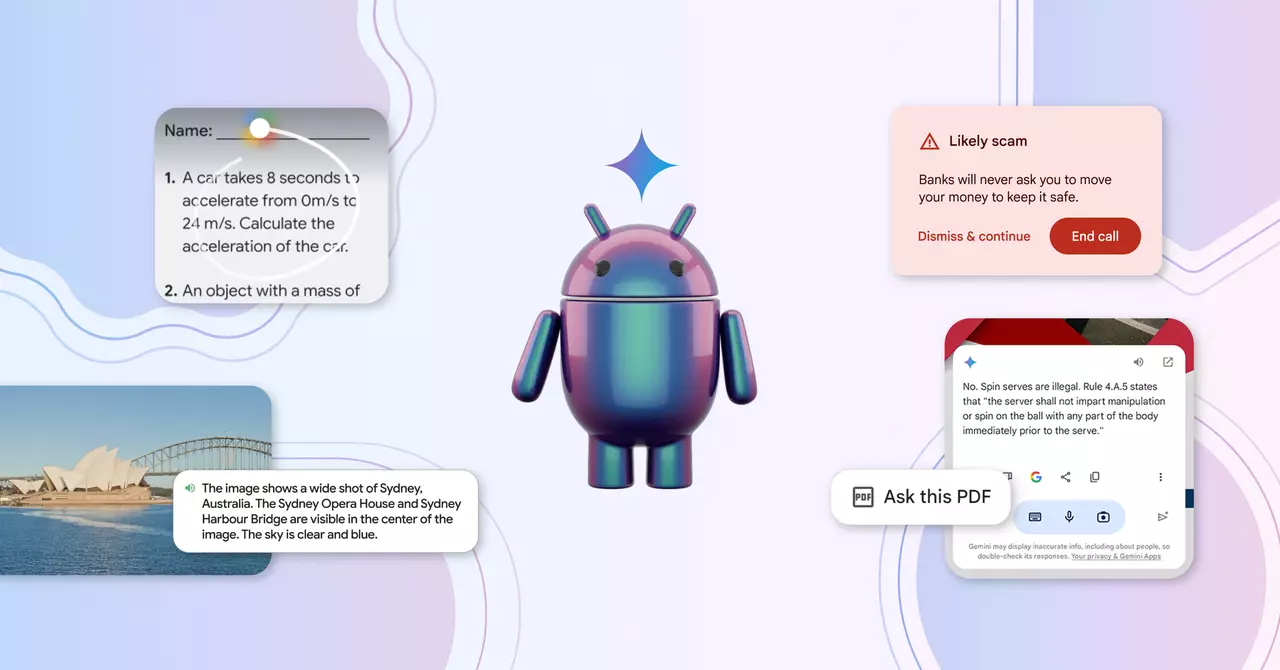Several years ago, Google introduced a feature called Now on Tap in Android Marshmallow. This feature allowed users to tap and hold the home button to access contextual information related to the content displayed on the screen. It was a revolutionary concept at the time, providing useful information without the need to leave the current app or webpage. The predictive nature of Now on Tap felt futuristic and exciting, making it a favorite among Android users.
Over time, Now on Tap evolved into Google Assistant, which offered similar functionalities but with a different approach. While Google Assistant was a great innovation in its own right, it lacked the magic and excitement of its predecessor. However, at Google’s I/O developer conference in Mountain View, California, the company unveiled new features in its Android operating system that harkened back to the heyday of Now on Tap.
The new features showcased at the conference leverage advancements in large language models to provide users with a more intuitive and seamless experience on their Android devices. Dave Burke, vice president of engineering on Android, emphasized the significance of having technology that can understand and anticipate user actions based on the content displayed on the screen.
During a video call with Burke and Sameer Samat, president of the Android ecosystem at Google, insights were shared on the future of Android and the company’s new AI assistant, Gemini. Samat described the updates as a “once-in-a-generational opportunity to reimagine what the phone can do” and to fundamentally rethink the Android ecosystem.
One of the key features introduced by Google is Circle to Search, which offers a new approach to mobile search. This interactive feature allows users to circle specific content on the screen, prompting Google to provide relevant information and results. Burke highlighted the engaging and modern nature of Circle to Search, noting its appeal to younger users.
An exciting aspect of Circle to Search is its integration with education. Students can now use the feature to solve physics and math problems, receiving step-by-step instructions without leaving the learning app. This capability, powered by Google’s LearnLM models, exemplifies the company’s commitment to enhancing educational experiences through innovative technology.
Gemini, Google’s AI assistant, has emerged as a powerful alternative to Google Assistant on Android devices. With the option to replace Google Assistant with Gemini, users can access a more advanced and evolving assistant experience. While the future trajectory of Google Assistant remains unclear, consumers now have the choice to opt into Gemini’s AI-powered features.
Google’s latest enhancements in the Android operating system represent a significant step forward in the evolution of mobile technology. By harnessing the power of advanced language models and innovative features like Circle to Search, the company is shaping the future of Android and redefining the possibilities of AI assistants. As users navigate the changing landscape of digital experiences, Google continues to lead the way with cutting-edge solutions that anticipate and exceed user expectations.


Leave a Reply